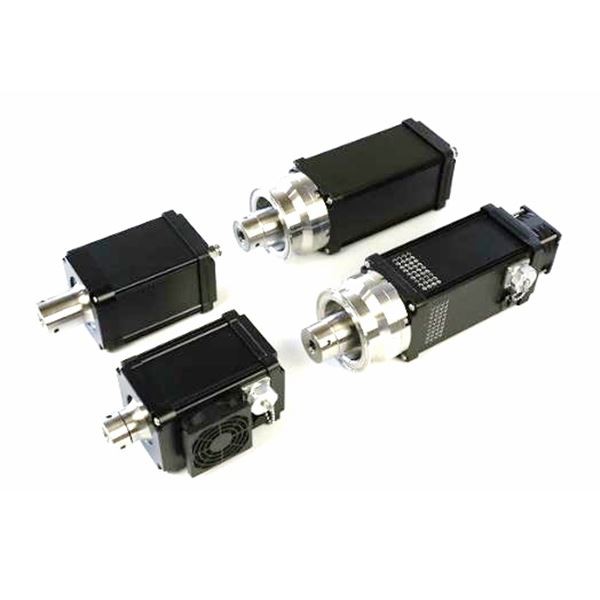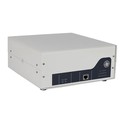Hey there! As a supplier of ultrasonic transducers, I often get asked about the cost of these nifty devices. So, I thought I'd sit down and break it all down for you in this blog post.
First off, let's talk a bit about what an ultrasonic transducer is. An Ultrasonic Transducer is a device that can convert electrical energy into ultrasonic waves and vice versa. These waves are used in a wide range of applications, from medical imaging to industrial cleaning, and even in some high - tech kitchen gadgets.
Now, when it comes to the cost of an ultrasonic transducer, there isn't a one - size - fits - all answer. The price can vary quite a bit, and there are several factors that play into it.
Frequency
One of the biggest factors affecting the cost is the frequency of the ultrasonic waves the transducer can produce. Transducers designed for lower frequencies (say, around 20 kHz) are generally less expensive than those that can generate higher frequencies, like 100 kHz or more. Why? Well, it has to do with the technology and materials required. Higher - frequency transducers need more precise manufacturing processes and often use more advanced materials to achieve those frequencies. For example, in medical applications where high - resolution imaging is needed, high - frequency transducers are a must. But these come at a premium price because of the extra work that goes into making them.
Power Output
Power output is another crucial factor. Transducers with higher power outputs can generate stronger ultrasonic waves, which are useful in applications like industrial welding or large - scale cleaning. But again, making a transducer that can handle and output a lot of power isn't easy. It requires more robust components and better heat management systems to prevent overheating. So, if you're looking for a high - power ultrasonic transducer, you're going to pay more compared to a low - power one that might be used in a small, consumer - grade device.
Quality and Durability
The quality and durability of the transducer also impact the cost. A high - quality transducer is built to last. It's made with better materials, has a more reliable design, and undergoes more rigorous testing. In industrial settings, where the transducers are used continuously and often in harsh environments, durability is key. A cheap, low - quality transducer might break down quickly, leading to more frequent replacements and downtime. On the other hand, a well - made, durable transducer might cost more upfront but will save you money in the long run.
Application - Specific Design
If you need a transducer that's customized for a specific application, that's going to add to the cost. Some industries have very unique requirements. For example, in the food processing industry, transducers need to be made from materials that are safe for contact with food. In the aerospace industry, they need to be able to withstand extreme temperatures and pressures. Designing and manufacturing a transducer to meet these specific needs takes more time and expertise, so you'll end up paying more for that specialized product.
Quantity
The quantity you're buying also matters. If you're purchasing a single ultrasonic transducer for a small project, you'll likely pay a higher per - unit price compared to buying in bulk. When you buy in large quantities, suppliers can often offer discounts because they can streamline their production processes and save on costs. So, if you're a business that needs a lot of transducers for your operations, it's worth considering buying in bulk to get a better deal.
Market Conditions
Market conditions can also cause the price of ultrasonic transducers to fluctuate. If there's a high demand for a particular type of transducer and the supply is limited, the price is going to go up. On the other hand, if there's a lot of competition among suppliers or a decrease in demand, prices may drop. Things like raw material shortages or changes in manufacturing costs can also affect the final price you pay.
So, what kind of price ranges are we talking about? Well, a basic, low - frequency, low - power ultrasonic transducer for a simple consumer application might cost anywhere from $50 to $200. These are the types you might find in small ultrasonic cleaners or some entry - level DIY projects.
For mid - range transducers that are suitable for a wider range of industrial and commercial applications, the price can be between $200 and $1000. These transducers usually have a good balance of frequency, power, and quality.
High - end, specialized transducers, like those used in advanced medical imaging or high - precision industrial manufacturing, can cost upwards of $1000 and sometimes even several thousand dollars. These are the top - of - the - line products that offer the best performance and are built to meet the most demanding requirements.
As a supplier, I understand that cost is an important factor for you. But it's also essential to consider the value you're getting. A cheaper transducer might seem like a good deal at first, but if it doesn't perform well or breaks down quickly, you'll end up spending more in the long run. That's why it's important to work with a reliable supplier who can help you find the right transducer for your needs at a fair price.
If you're in the market for an ultrasonic transducer, whether it's for a small project or a large - scale industrial application, I'd love to have a chat with you. We can discuss your specific requirements, and I can help you figure out the best option for your budget. Don't hesitate to reach out and start the conversation. Let's find the perfect ultrasonic transducer for you!

References
- "Ultrasonic Transducer Technology" by Industry Press
- "Practical Applications of Ultrasonic Transducers" by Research Institute Publications





